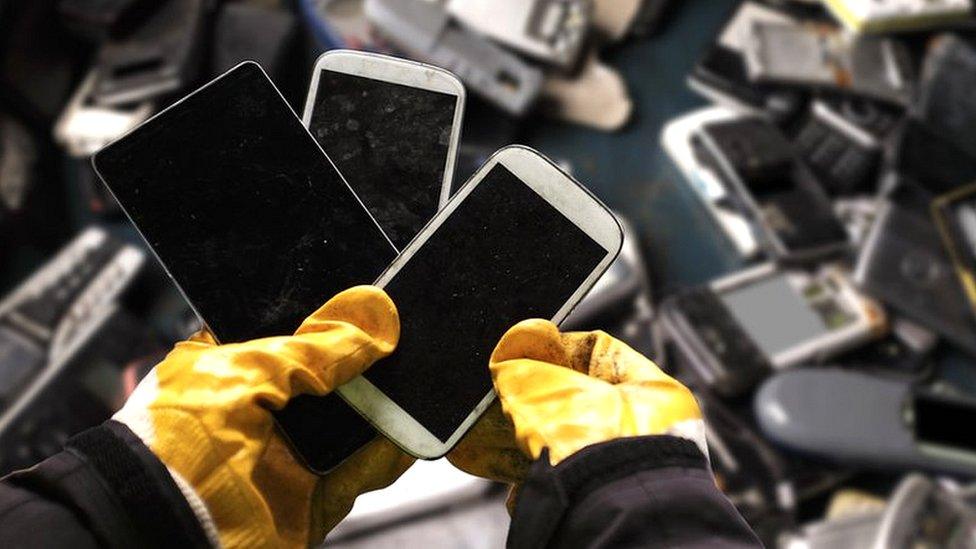Nearly half a billion small tech items thrown away
- Published
- comments
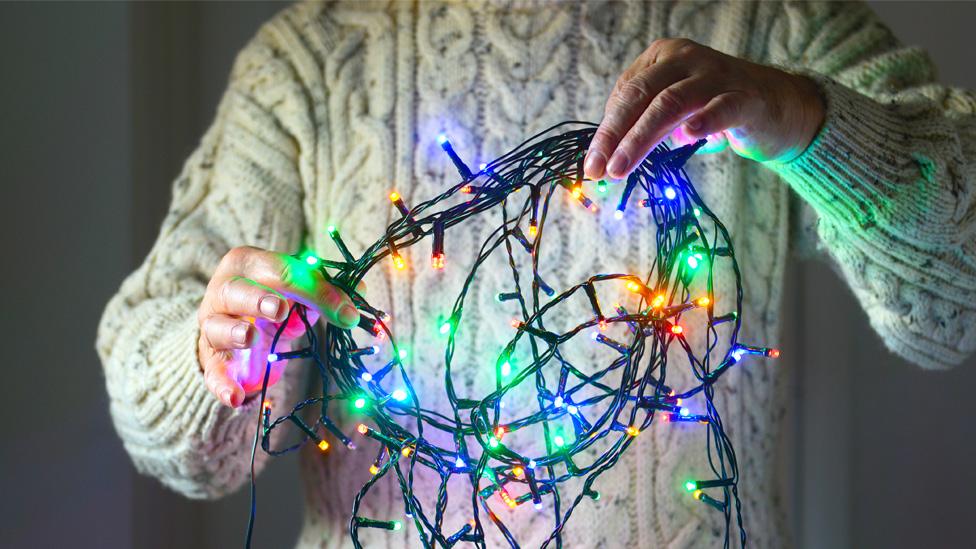
Nearly half a billion small electricals such as cables, lights, mini fans and disposable vapes, were thrown away last year, research from Material Focus has shown.
These "Fast Tech" items, the electrical version of fast fashion, are the fastest-growing e-waste type, it says.
The average home also has 30 unused electrical items gathering dust, the research shows.
These items contain valuable raw materials, and all can be recycled.
The not-for-profit group Material Focus commissioned a survey of 2000 people from Opinium Research. Based on the responses it calculates that 471m "Fast Tech" items were thrown away in the UK last year, including:
260 million disposable vapes
30 million LED, solar and decorative lights
26 million cables
10 million USB sticks
7 million cordless headphones
5 million mini fans
The average cost of £4 for these items encourages consumers to see them as disposable, though they aren't always designed to be.
They all contain valuable raw materials, such as copper wires and lithium batteries, which can be recovered through the recycling process.
Scott Butler, executive director of Material Focus, said: "People may not realise that they contain valuable materials and will just pop them in the bin, meaning we lose everything inside them instead of recycling them into something new. We want to get the message across that anything with a plug, battery or cable can be recycled and there's somewhere near you to do it."
There is a similar picture worldwide. Every year consumers throw away 9 billion kg of cables, toys, vapes, novelty clothes and similar devices which they often don't recognise as e-waste, according to research from the Waste Electrical and Electronic Equipment Forum.
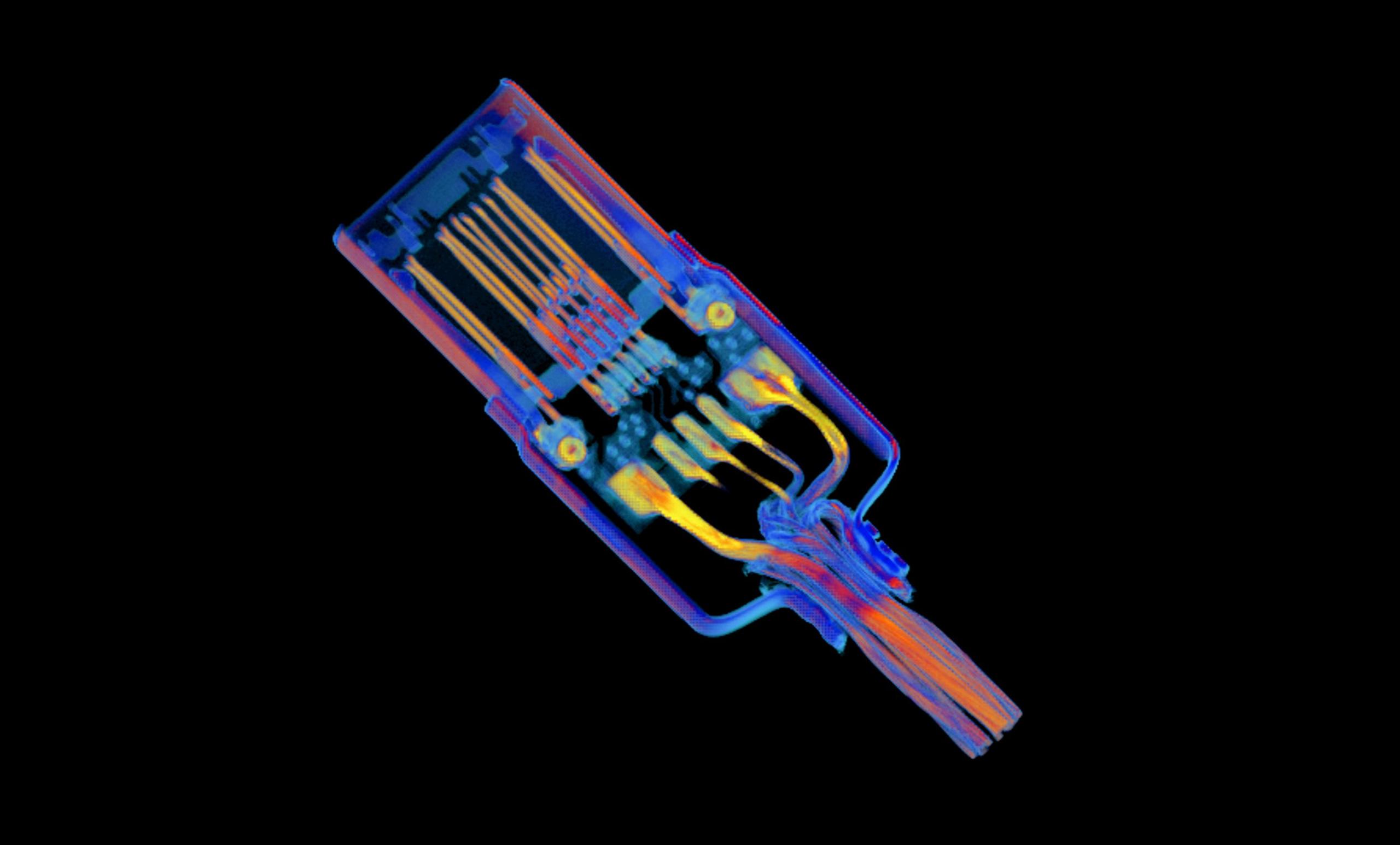
Scan of a USB-C plug, highlighting copper wires and gold-plated connectors
Material Focus's research also showed that the amount of electrical waste has decreased since 2017. That's partly because many electrical items are lighter now, but also because recycling rates have risen. 60% of people now say they recycle their electricals.
But many people also have unused electrical items such as cables, mobile phones, and remote controls gathering dust - amounting to 30 items per home, which could all be put to better use.
Nadiya Catel-Arutyunova, sustainability adviser at the British Retail Consortium, said: "All retailers selling electricals, whether it is online or in store, are required to help customers dispose of their old electrical products - regardless of where they were originally purchased."
Material Focus's survey is based on a survey of 2000 nationally representative adults by Opinium Research, conducted in July for Fast Tech, and August-September for hoarded electricals. The vapes figure comes from a survey of 5,156 adults conducted by Yougov between June and August.
Material Focus is a not for profit organisation devoted to encouraging recycling. It is funded by fees paid by electrical producers when they don't meet their government recycling targets.

How can I recycle my electricals?
Used electricals can be sold, donated, repaired - or if none of those is possible, recycled.
You can take old electricals to recycling centres, libraries, and other locations to be collected. Some councils will collect from your door.
Retailers are also required to help people dispose of old electricals, even if they didn't sell them to you in the first place.
The Recycle Your Electricals, external website has a guide to local recycling facilities.

- Published8 September 2023
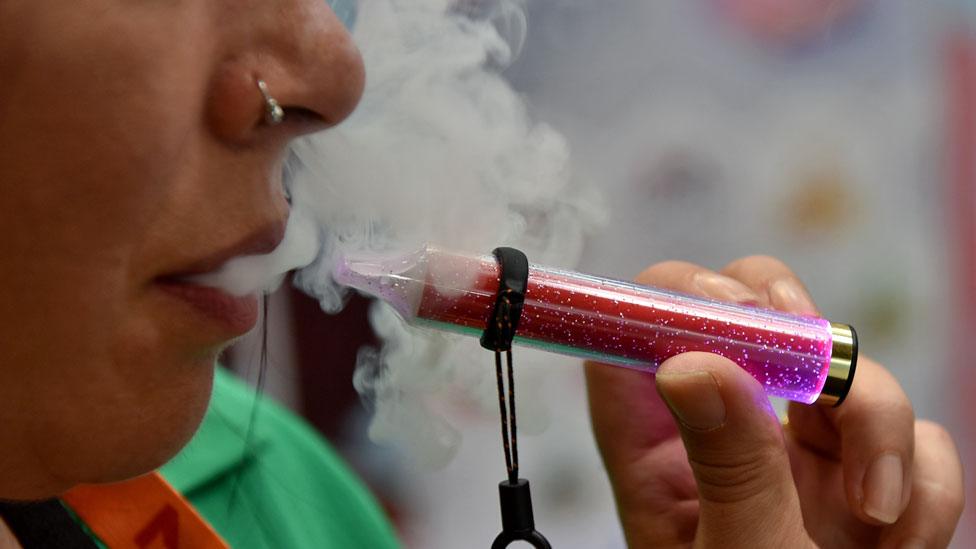
- Published14 October 2022
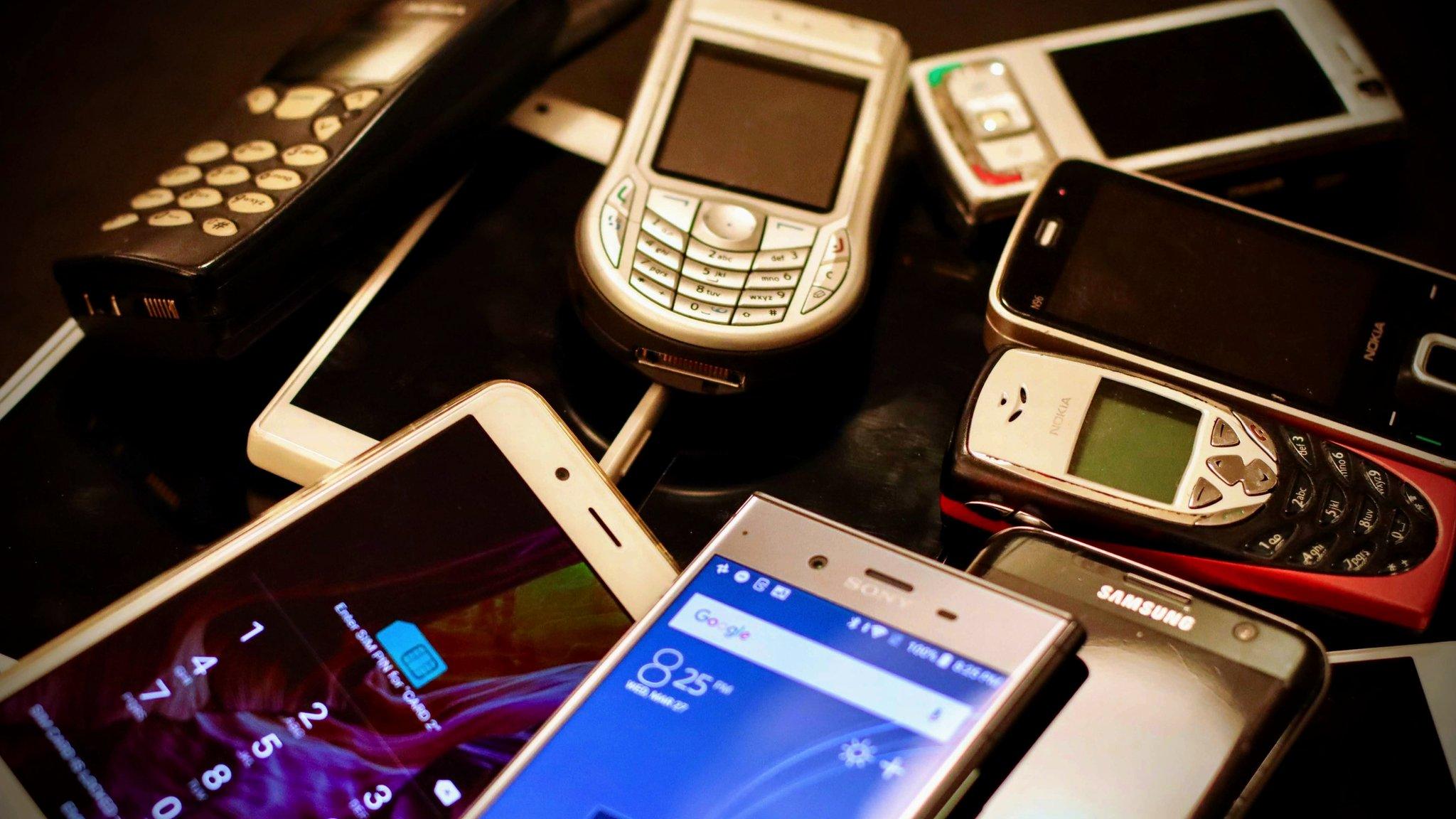
- Published16 July 2020
